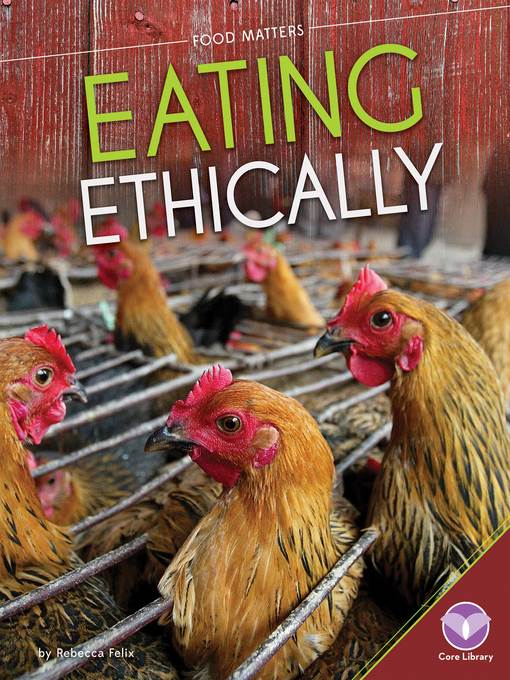
Eating Ethically
Food Matters
فرمت کتاب
ebook
تاریخ انتشار
2015
Lexile Score
900
Reading Level
4-5
ATOS
5.8
Interest Level
4-8(MG)
نویسنده
Rebecca Felixناشر
ABDOشابک
9781629697277
کتاب های مرتبط
- اطلاعات
- نقد و بررسی
- دیدگاه کاربران
نقد و بررسی

November 1, 2015
Gr 4-7-Although all people need to eat, not all of us tend to think about where our food comes from and what goes into producing it. Providing pros and cons related to the issues, this series outlines ways in which people can become well-informed, responsible, and safe food consumers. Each book begins with a chapter that addresses readers in the second person, making the topic relevant to the audience. Socially responsible food matters are discussed, such as genetically modified organisms and animal rights, as well as topics related to health, including serving sizes, nutrition, and exercise, in order to guide readers into making healthful and ethical choices. Appealing captioned color photos, charts, and sidebars provide additional information that supplements the main text. A "What's the Big Idea?" feature urges students to do a close reading and answer text-based questions, and a "Consider Your Audience" feature prompts them to adapt text and write a blog post. VERDICT A well-rounded, engaging series.
Copyright 2015 School Library Journal, LLC Used with permission.

October 1, 2015
Grades 4-6 This volume in the Food Matters series addresses food production and consumption in the U.S., with an eye on factory farms. Felix clearly establishes that ethical food should be produced without abuse to animals, the environment, or humans. The animal rights chapter is the most upsettingwith stories of debeaked chickens and pigs being fed garbage ( including crushed glass and used syringes )but will succeed in getting readers to question how their food is raised. Next, environmental concerns related to farm waste, pollution, transportation of goods, and overfishing are addressed. Finally, readers are asked to consider the treatment of farm workers and fair-trade practices. Seeking a balanced approach, each chapter discusses ethical and unethical farming practices and encourages readers to extend their research and make conscientious choices about the food they eat.(Reprinted with permission of Booklist, copyright 2015, American Library Association.)

























دیدگاه کاربران